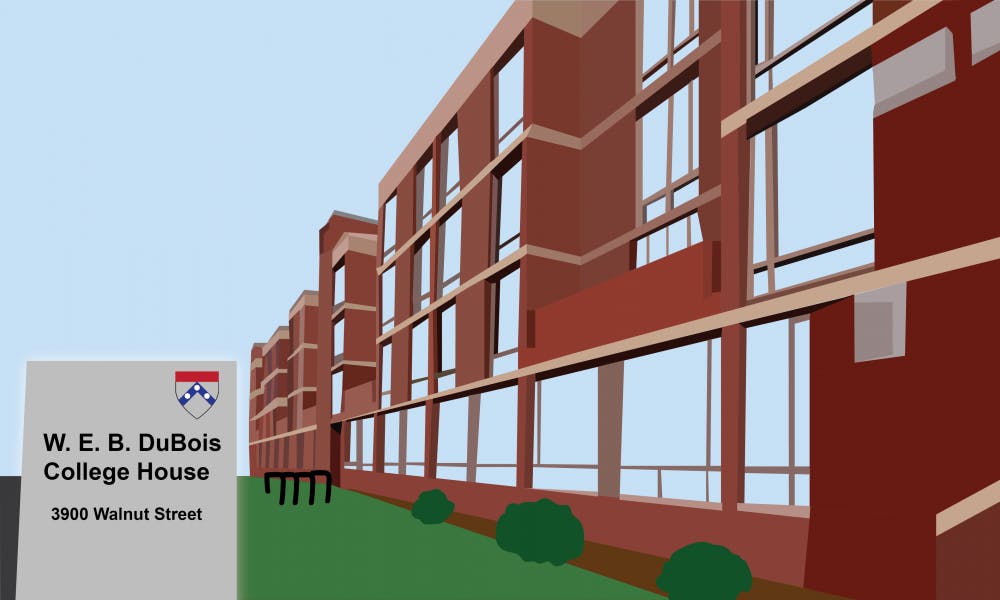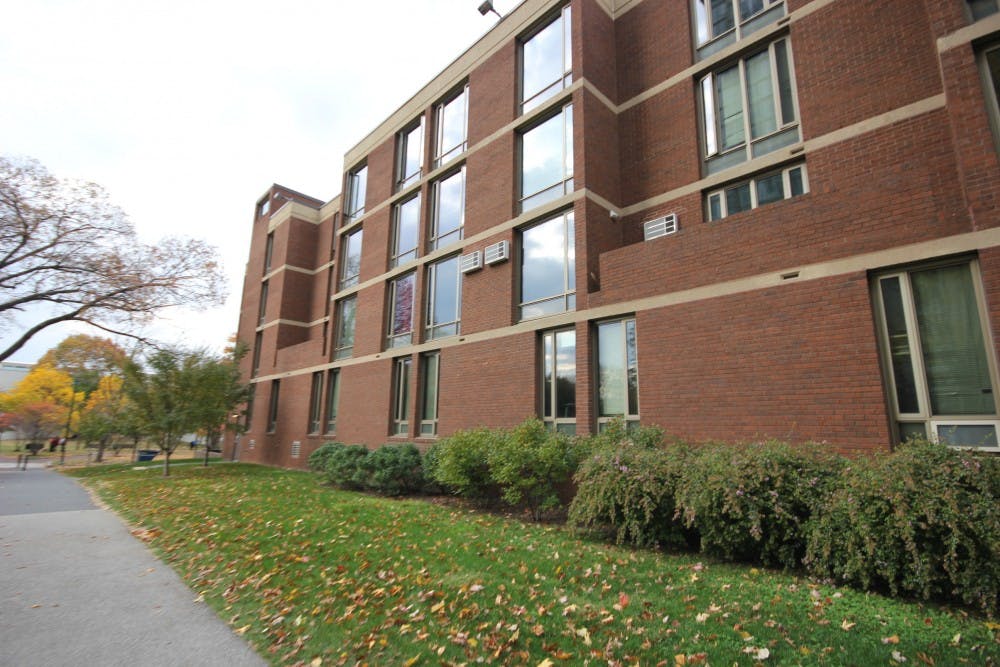
As Du Bois College House completes its 45th year in operation, I’ve decided to pay homage to the place that I call home on Penn’s campus.
Du Bois, known as one of the hubs for black social life on campus, is perhaps my home away from home. It’s the place where I’ve formed some of my closest friendships and somewhere I can just be absolutely, unapologetically, myself. But it is also a place that has been under much scrutiny by many students at this University as evidence of a lack of truly “diverse” social spaces.
From the claims stating that “Du Bois isn’t based on culture but on color,” in an opinion column published in The Daily Pennsylvanian in 1984, to articles equating “the prohibition of Du Bois College House to the disbanding of the Ku Klux Klan," to even more recently the donning of Du Bois College House as “a strange idea,” by James Lee in his “Breaking Down Fences” column, Du Bois College House has been a recurring target by columnists at the DP.
I find these claims disheartening. I write this not to stir up argument, but to point out how Du Bois College House has had a lasting impact on myself, and point out why such a house should be cherished as a piece of history, not by just black students on campus, but by all.
Du Bois College House was not founded to segregate black students from the rest of campus, in attempts to close them off. It was founded on the premise of developing a living-learning community; a space where black students on campus would be able to grow in their academic and intellectual pursuits during a time of hostility. The house was founded so that black students could also learn about their own history as well, which was not taught in the University setting at the time.

To this day, Du Bois continues to foster and teach African-American culture to all of its residents. Implicitly, the walls of the dormitory are adorned with the stories of W.E.B. Du Bois and the many firsts on this campus (i.e. Penn's first black graduate, first class of black women to graduate). Explicitly, student groups and faculty members lead African culture events and discussions.
This semester, the course "The History of Women and Men of African Descent at the University of Penn" is being taught directly in Du Bois College House.
Du Bois welcomes all cultures and all types of people to live in its building. It isn’t simply limited to those who are black, Hispanic, or Asian. It just simply seems that those groups tend to gravitate toward the housing. But that is not the fault of its own people. If anything, I would encourage more non-minority groups on campus to live in Du Bois College House. In fact, I urge it.
I’ve learned a lot from Du Bois. I grew up in a very white and Asian suburban neighborhood and I attended a high school that was statistically 1 percent black. All too often, I was familiar with being the minority. I felt as though I knew so much about other cultures that I often felt disconnected from my own. Du Bois has been a place where I’ve been able to learn more about myself and about a culture I wasn’t entirely familiar with. I think that my white counterparts on campus might gain from such an experience, just as I have. I think it would be valuable to provide a space for them to understand an unfamiliar culture and environment.
Such a house is evidence of the historical race struggle that this country has endured. With the current state of affairs, and an increasingly emboldened white supremacist population, the need of Du Bois’ existence and cultural hubs like it continues to grow. Perhaps instead of criticizing its existence, students should use it as a space to learn; as a space to understand the groups that often lack a voice in the conversation. Perhaps spaces like Du Bois can play a role in forwarding the conversation.
It seems as though the root of so many problems in our current society is a lack of communication. It’s this lack of understanding that leads students to misplace blame on minority groups, failing to see the necessity of places like Du Bois, PAACH, Makuu, Hillel, and La Casa Latina. If more conversations were fostered around having the majority understand the experience of the minority, perhaps the value of such places on campus would be widely appreciated.
CHRISTINE OLAGUN-SAMUEL is a College sophomore from Paramus, N.J. studying health and societies.
The Daily Pennsylvanian is an independent, student-run newspaper. Please consider making a donation to support the coverage that shapes the University. Your generosity ensures a future of strong journalism at Penn.
Donate







